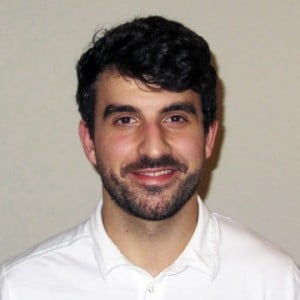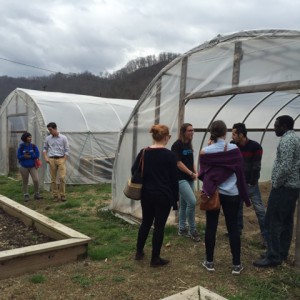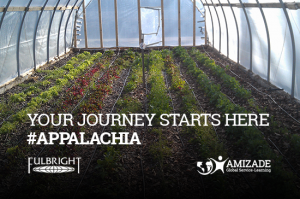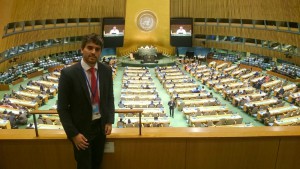
Jimmy Mahady is a Fulbright U.S. Student Program alumnus who researched the development of renewable energy in Uruguay in 2013.
Foreword: The musings herein were gleaned from a few days of service-learning through a special Fulbright Enrichment Activity with Amizade in the town of Williamson, WV and its surrounding area. My intuition and meager sample size have yielded this blurry, self-reflective view of what was, is and may be. Thanks for reading.
Six participants from abroad, six from the U.S. – I have come together under the banner of mutual understanding with my fellow fellows to Williamson, WV and we are growing together like a bunch of grapes. I’ve never been to a place like this. Infinite hills – friendly, drawn-out speech and demeanor – a town with its head held high – in spite of unforgiving squalls of global market forces. From far away, current residents’ forefathers arrived here, willing or not, nearly all of whom fought hard to survive. The rich seams of coal presented an obsidian opportunity, but avaricious plutocrats spared no expense to make the people’s sometimes deadly struggle for fair treatment seem Sisyphean. Eventually they prevailed, and fairer wages and better working conditions begot longer hours below with the black particulate that crackled in their chests.


 In March 2016, the U.S. Department of State’s Bureau of Educational and Cultural Affairs will sponsor six Fulbright Foreign Student Program students, along with six Fulbright U.S. Student Program alumni to participate in a week-long service-learning program in Williamson, WV led by
In March 2016, the U.S. Department of State’s Bureau of Educational and Cultural Affairs will sponsor six Fulbright Foreign Student Program students, along with six Fulbright U.S. Student Program alumni to participate in a week-long service-learning program in Williamson, WV led by 